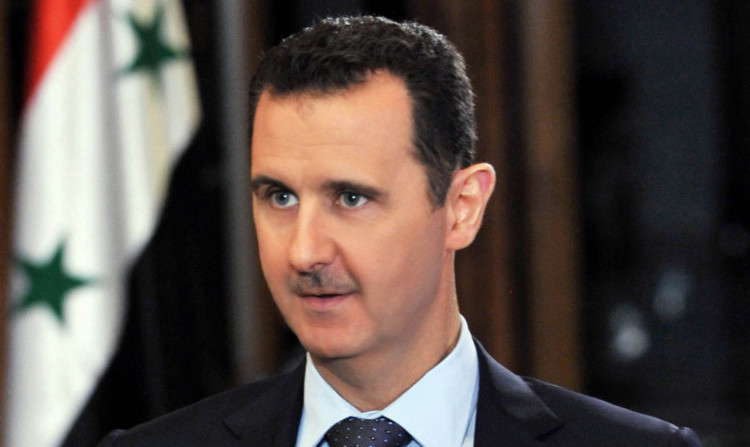Proposals for Syria to give up its chemical weapons could represent a “big step forward”, but it is for the Russian government and the regime of President Bashar Assad to show that the offer is “serious and genuine”, Prime Minister David Cameron’s official spokesman said today.
The spokesman said that “serious questions” need to be asked about the surprise proposal put forward by Russian foreign minister Sergei Lavrov and immediately backed by Damascus on Monday.
US president Barack Obama has said he will put plans for a military strike against Syria on hold if the country places all of its chemical weapons for destruction under international control.
But Downing Street cautioned that the Russian initiative must not be allowed to become a “distraction” and said the UK did not want to see an “endless” process of identifying weapons and verifying their handover into international control.
Mr Lavrov’s proposal was made just hours after US secretary of state John Kerry suggested in London that Assad might forestall international military action by giving up his chemical arsenal.
Even though Mr Kerry made clear that he had no expectation of Assad taking this step, Moscow seized on the idea as a potential solution to the current impasse over the international community’s response to the use of nerve gas sarin against civilians in a suburb of Damascus on August 21, which killed 1,429 people.
In a round of television interviews last night, Mr Obama said the proposal was “potentially a significant breakthrough”, but he remained sceptical that Syria would carry it out.
Mr Cameron said it would be “hugely welcome” if Syria were to place its chemical arms under international control, but warned MPs that the international community should not be distracted from taking a robust stance on the August 21 attacks.
The PM’s official spokesman today made clear that Downing Street is giving a cautious welcome to the Lavrov plan.
“A number of serious questions have been prompted by developments yesterday,” the spokesman told a regular Westminster media briefing. “The onus is now very much on the Russian government and the Assad regime to follow up in a way that shows that this initiative is a serious and genuine offer… If it is a serious and genuine offer then we would encourage it. I underline ‘if’.”
He added: “Our objective here in Syria has been to stop the suffering of the Syrian people. It has also been to prevent the Assad regime from using chemical weapons against its own people, as has happened on August 21.
“If there is a genuine offer to eradicate chemical weapons, then that is something that would be a big step forward.”
The spokesman pointed out that as recently as Monday Assad was refusing to confirm that he holds stocks of chemical weapons. It was not yet clear what mechanism would be employed to determine the size of his arsenal and to ensure that it is all placed under international control, or what agency might undertake this work.
Mr Kerry suggested Assad would have to give up his chemical stocks within a week to avert military action though he made clear he did not believe this was likely to happen.
Asked whether Britain would set a timetable for the Russian proposals, Mr Cameron’s spokesman said: “There are a whole series of questions that need to be answered about how such a process might work…
“This can’t be in any way a kind of endless process. Demonstrating that is very much part of how we establish whether or not this is a serious and genuine offer.”
He added: “We must be very vigilant about the risk of distraction tactics. That is why I say this can’t be an endless process.”
